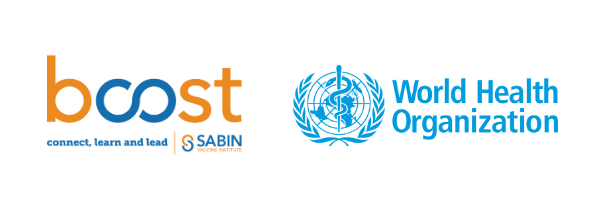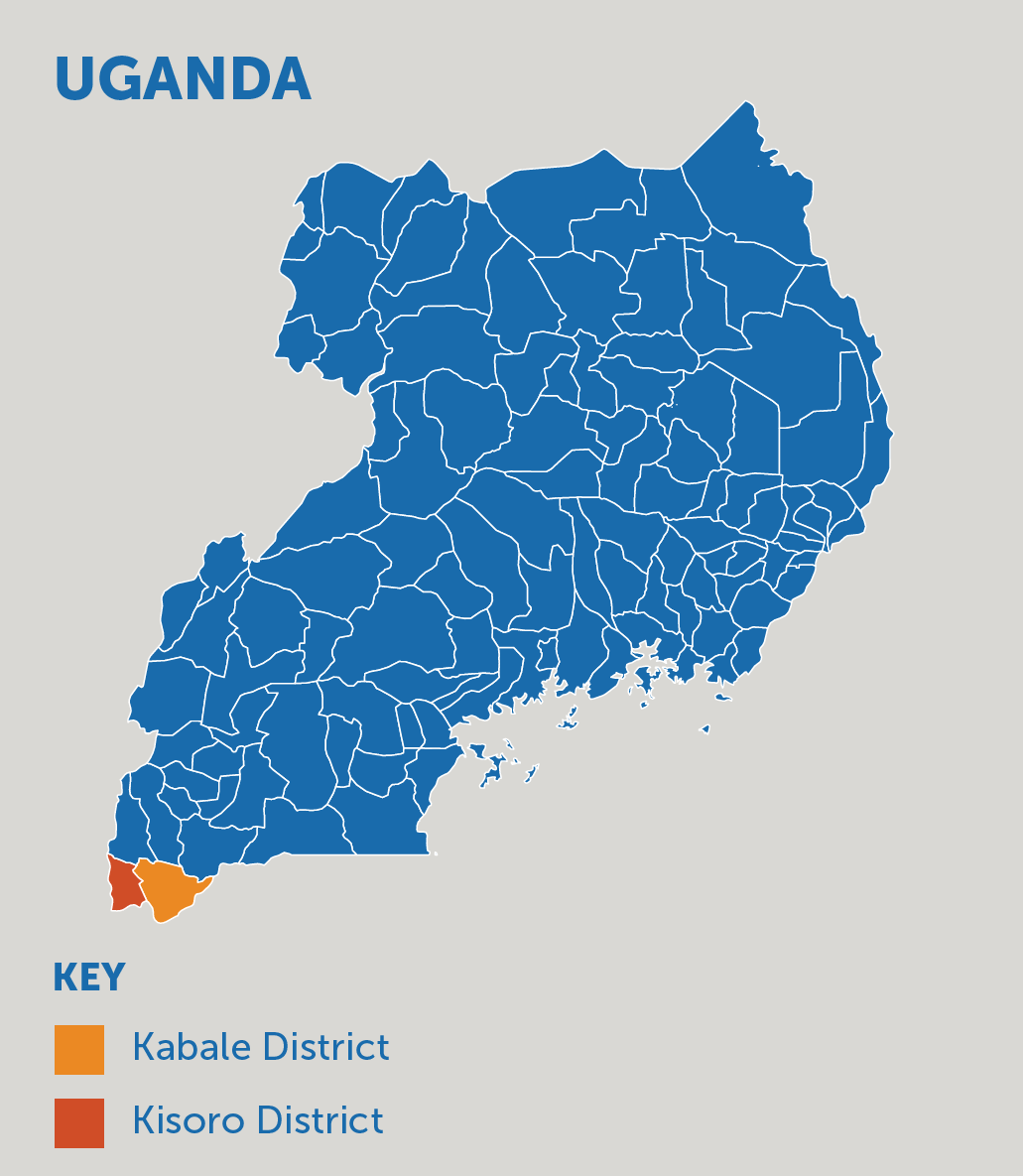Leaving No One Behind: Catch Up Vaccination in the Batwa Community of Uganda
In May 2022, Sabin’s Boost Community and the World Health Organization (WHO) launched the first cohort of the "COVID-19 Recovery for Routine Immunization Programs Fellowship". The aim of this program was to strengthen the capacity of national and sub-national immunization professionals to plan and implement immunization programming during the COVID-19 recovery period, with the ultimate goal of reversing the declining rates of immunization coverage. After an intensive live engagement series, Fellows were tasked with drafting their own strategic proposal for implementation or case study for publication. This series of Bright Spots share Fellows' key learnings and takeaways from the program.
As a Technical Officer in the Directorate of Public Health of Uganda’s Ministry of Health, Martha Nalweyiso assisted the national COVID-19 vaccination commander, coordinating the launch of vaccination campaigns and mobilizing communities to get vaccinated. From this position, Martha had a clear view of which people and groups were not getting vaccinated in the country. In particular, she identified the Batwa community in the southwestern region of Uganda as a group that was especially vulnerable to immunization gaps due to their isolation from society.
In April 2022, a colleague shared with Martha an opportunity to apply to the 2022 COVID-19 Recovery for Routine Immunization Programs Fellowship, an opportunity offered by the Sabin Vaccine Institute’s Boost Community (Boost) and the World Health Organization (WHO) to strengthen the capacity of immunization professionals, like Martha, to recover and bolster immunization programs in their countries. Recognizing the chance to help the Batwa community, Martha eagerly joined the Boost Community and the Fellowship.
Martha’s project focused on identifying and reducing immunization gaps regarding catch-up and missed vaccinations among the Batwa community in Kabale and Kisoro districts. She was inspired to help this group because of their marginalization.
“I imagine a scenario in a community which doesn’t even have a radio, which doesn’t even have a TV, which never went to school. I imagine, how do these people get this information if we are struggling with ones who have access to media, to internet. How about these ones who don’t have [many resources] in their community?” ~ Martha Nalweyiso
Thinking Creatively to Reach Isolated Communities
Martha and her team recognized that, firstly, immunity gaps in this group had to be identified and assessed. Martha engaged officers from the Uganda National Expanded Program on Immunisation (UNEPI) at the Ministry of Health to identify stakeholders to help with workshops with sub-national health workers. These workshops addressed COVID-19 vaccination, routine immunization programs, missed opportunities for vaccination, and health worker experiences with vaccination and recommendations.
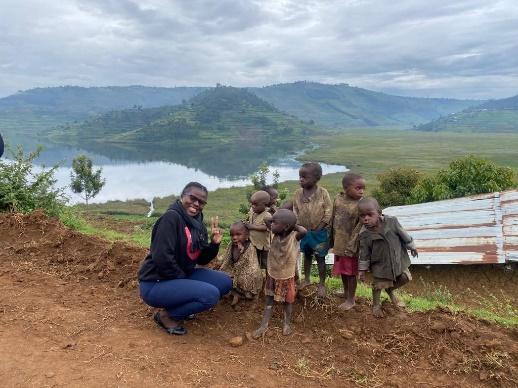
Armed with training from these workshops, a team of ten people from UNEPI visited the Batwa communities in both districts. Reaching the isolated communities required ingenuity and perseverance, as the poor road networks were further impacted by the rainy season. The team hired translators to ensure no language barriers when communicating with the Batwa community.
It was clear from this visit that the Batwa community felt marginalized from the rest of the country and feared discrimination in health facilities. Though in Uganda, Village Health Teams (VHT) consisting of local members generally mobilize community members to access community health services and pass information from the district to their communities, “[the Batwa community doesn’t]t have a VHT, so they feel they’re not being included in the government programs and interventions,” Martha shared. However, the community welcomed Martha and her team. She said, “They… sing and clap for us; they were happy to see us…”
Listening and Learning to Meet Community Needs
Martha and her team engaged local stakeholders by hosting community dialogues and in-depth interviews with members of the Batwa community in order to understand their unique needs and challenges. Additionally, the team documented the various myths and rumors about COVID-19 that were circulating throughout the community. Based on this information, Martha and her team developed targeted risk communication strategies to increase primary healthcare-seeking behaviors. Subsequently, they began disseminating informational documents that were translated into the local language – something that had not been done before.
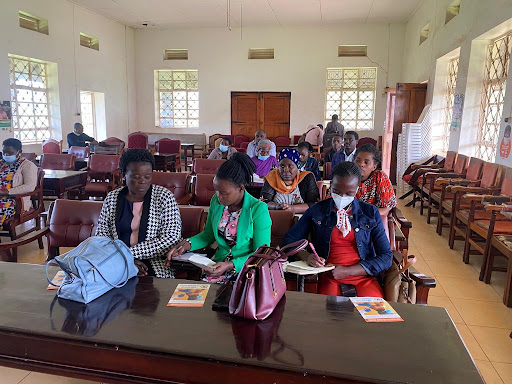
By understanding the reasons behind the poor health seeking behaviors of the Batwa community, the team was able to use tailored strategies that succeeded in encouraging community members to seek health services. Following implementation, there was an increase from 10% to 25% of community members who sought medical attention from the health facilities instead of self-medication through cultural leaders.
Increase in number of community members who sought medical attention from the health facilities
Upon completion of the project, Martha advocated for marginalized communities to be included within the strategic aims of the National Immunization Strategy (NIS). Martha presented her project findings to the UNEPI to help aid the development of the NIS, which is currently under review by relevant stakeholders. In the meantime, Martha calls on District Health Officers to include budgets for quarterly health camps near the Batwa communities in order to improve health service delivery and access. And, importantly, she encourages them to recruit a VHT from the Batwa community, as part of the district work plan. These steps will help drive the sustainability of the intervention moving forward.
However, Martha’s work with the Batwa community is not finished. Her passion is working with communities. She said, “Community engagement is very important. How you reach the communities is very, very important.” She added, “I would really love to go there and, you know, engage them more, empower them, encourage the women to go and seek treatment from the hospitals.” She also hopes to reach the other four Batwa communities in the southwestern district with similar interventions.
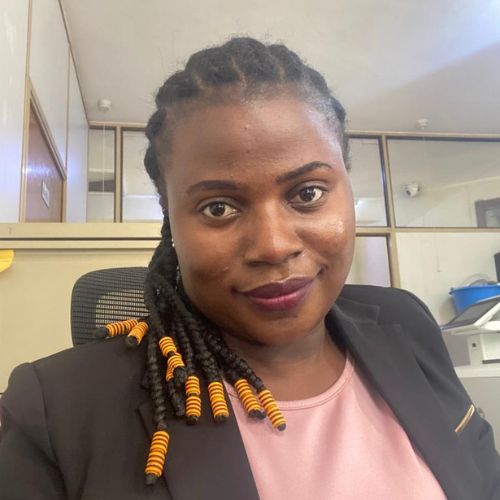
2022 Fellow & Contributor
This story was shared by Martha Dorcas Nalweyiso, a Technical Officer and a Public Health Specialist in the Directorate of Public Health at the Ugandan Ministry of Health. Before this, Martha worked as an Incident Management Team duty officer with Uganda Ministry of Health. Martha holds a Bachelor of Science in Wildlife Health & Management and a Master of Science in Animal Health from Makerere University, Kampala, Uganda. She is also pursuing a Master of Public Health from Uganda Christian University.
